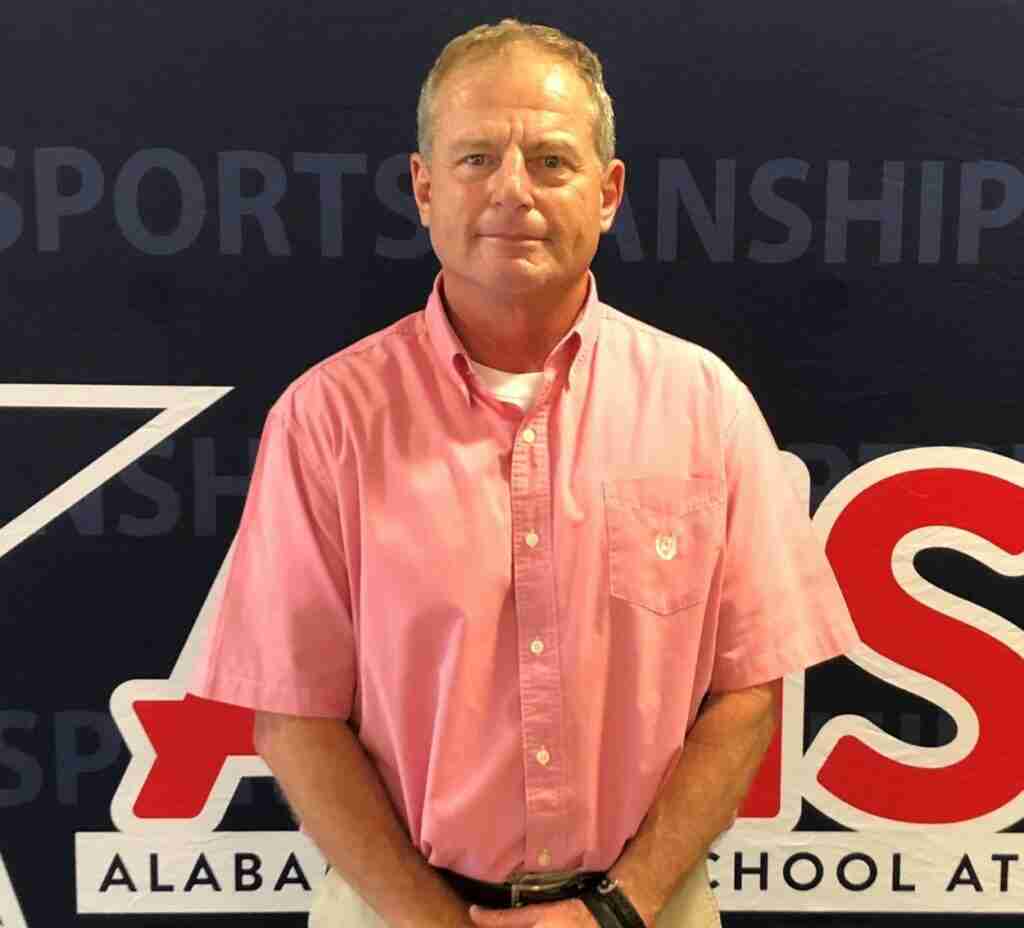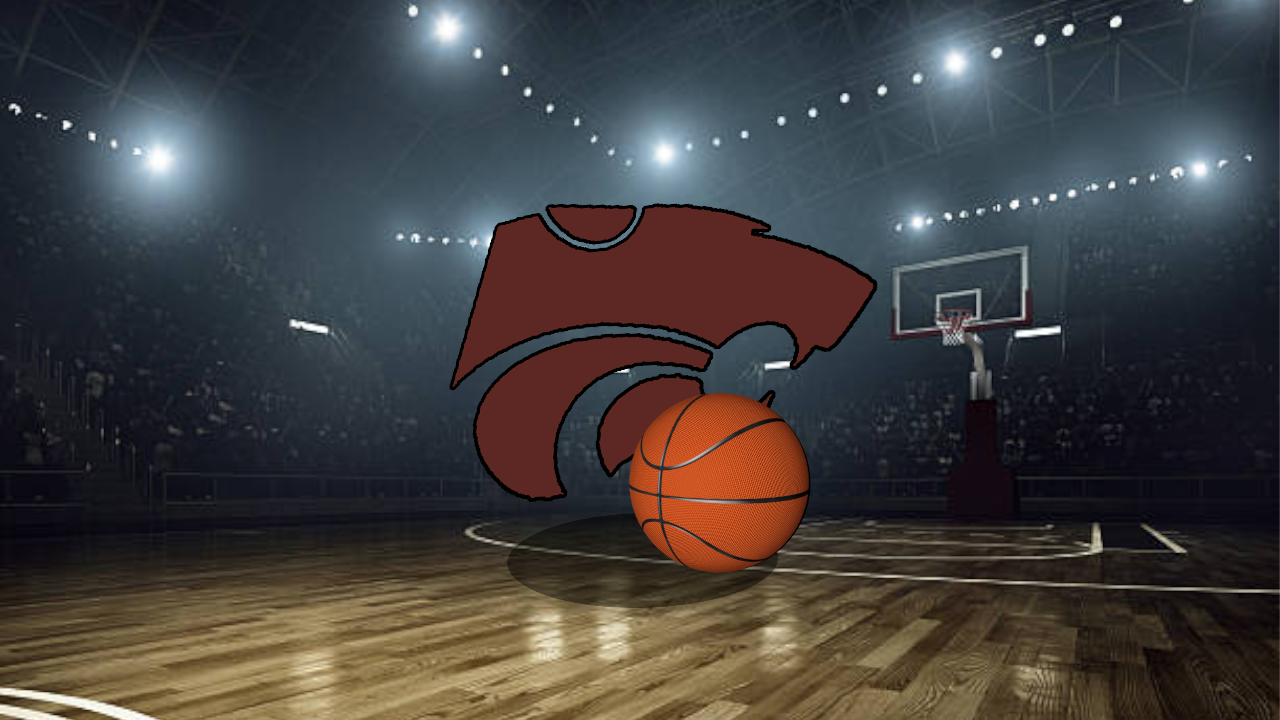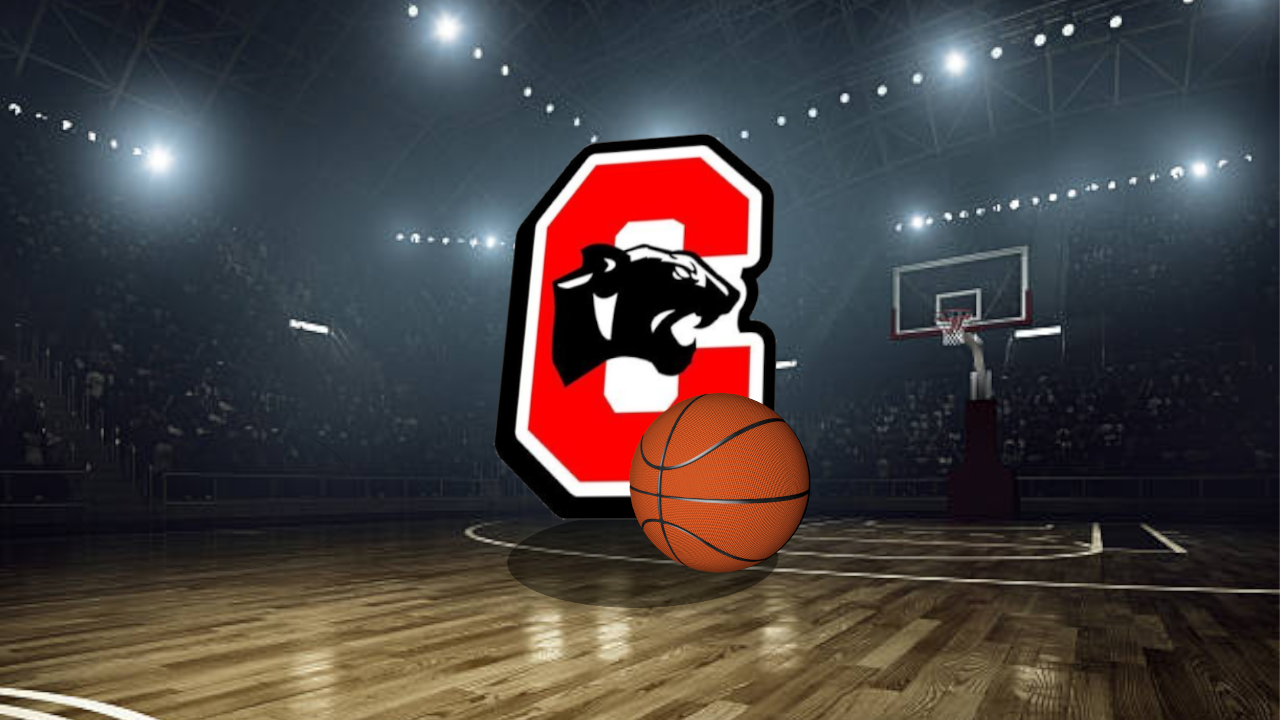
NOTE: This is the fourth of five Q&A features on the Cherokee County Hall of Fame Class of 2020 inductees. The class was originally going to be inducted that year but was not because of the COVID-19 pandemic. The latest class of inductees will be formally honored at a banquet this Saturday at the Gadsden State-Cherokee Arena at 6 p.m. Today’s Hall of Fame focus features former Gaylesville, Spring Garden, Cherokee County and Piedmont boys basketball coach Tommy Lewis.
A 1979 graduate of Spring Garden who played point guard for legendary coach Dale Welsh, Lewis posted a career record of 602-342, which included taking three different schools to the state semifinals. Lewis had 20 teams win 20 or more games, and he coached his teams to 22 area titles. His 2006 Cherokee County High School squad had a 31-2 record and reached the Class 4A state tournament semifinals.
Lewis compiled a 226-106 record at Spring Garden from 1988-99. The Panthers reached the Class 1A state tournament in 1989. Lewis also earned a 226-153 mark at Piedmont from 2006-18. He guided three Bulldog teams to Northeast Regional titles and three state tournament appearances (2010, 2011 and 2015). The 226 wins at Piedmont are the most in school history.
This is the second hall of fame selection for Lewis. He was also inducted into the Alabama High School Sports Hall of Fame Class of 2020.
Lewis still continues coaching the sport he loves. He is now the head boys basketball coach at Coosa High School in Georgia.
Q: What were your thoughts when you received the call about going into the Cherokee County Sports Hall of Fame?
A: “They must be afraid I was about to die or something (laughter). There are so many people who still haven’t got in. I didn’t do very much myself. That’s why I’m a little bit hesitant. I watched other really great players. A lot of people who have gone in had great athletic careers themselves, did great things at SEC schools and things of that nature. I know a lot of these people were great athletes. Basically I’m here watching on the sideline, watching really good players, so it’s a little bit humbling. You feel like you don’t deserve to be there. There’s a little bit of that, but I’m very proud.”
Q: What was the journey like from being a 1-24 team your sophomore year to becoming a state runner-up?
A: “When I was in eighth grade, we played Collinsville. We rode the pep bus over to watch Spring Garden and Collinsville. It was my favorite team – Mike Westbrook, Terry Gamble, Ralph Burton, Terry Law, and Randall Roland. My mom drove the pep bus and I was out there on the bus crying. The thing was the next year Terry Gamble and them made the playoffs when we were ninth graders. We got to practice against them. Of course we have one of the best teams in school history, and the next year they start us and we go 1-24. Everybody thinks the world has collapsed. It’s real fun hearing some of the older men come back and talk with me and tell me how bad they thought I was.
“It’s something to go from the best team the school’s ever had to possibly the worst team the school’s ever had, but have a coach you believed in. The rumor was Coach (Dale) Welsh was leaving. We were walking through the lunchroom line one day and one of the lunchroom ladies said ‘I hear your coach is leaving.’ I remember we just finished that 1-24 year and we said ‘Oh no, he’s not going anywhere. We’re going to be too good.’ What kind of person who just finished 1-24 actually believes you’re going to be any good? He did that. He got us to believe we were going to be good. There were a lot of things in my career, the bad things, but they just started to be things I could use later on.
“I do have some newspaper clippings (from the state tournament in 1979). We became like darlings down there. Cecil Hurt from The Tuscaloosa News was writing articles about us. I remember one article he wrote about us was we were slow, short and determined. That was the headline for our game. It was a great experience. I think how times have changed. I think all the schools except Cherokee County sent a pep bus. I think we had a pep bus from Sand Rock, Cedar Bluff and Gaylesville. That experience is kind of what you try to get for all the kids you’re coaching. I want you to get what I had. It’s the driving force for wanting to get people back. Sadly, you’d like to have gotten further if you didn’t win one, but I never was able to.”
Q: How would those people who watched you describe Tommy Lewis the player?
A: “I often tell my players today I was the worst player on the team. Every year I came in, I kept expecting I wouldn’t start the next year. We had a tragedy when we lost Tim Rankins. I don’t know if I would’ve started my senior year if we hadn’t have lost him.
“Coach Welsh made me team captain, and that was about the only accolade I ever got as a high school player. I guess my role was to get the ball to Tim Cronan, Steve Roland and Steve Rogers, which were all great players. It was a really good team.”
Q: You mentioned Coach Welsh. What kind of impact did he have on you?
A: “I had enrolled at the University of Alabama and was going into the engineering program, then my mother passed. I had a little sister, so I wound up staying at home. I went over there (to Spring Garden’s gym) and watched practice one day. Coach Welsh followed me out and asked me if I would help him.
“Coach Welsh did a neat thing. He started including me in the coaches meetings. I’d go to those meetings with him and Bobby Joe (Johnson) and Coach (Russell) Jacoway. I love Coach (James) Rowe. He talked to me like I was a coach and not some 19-year-old freshman in college. It meant something to me for all those people to accept you.
“As far as philosophy, it was pretty much always Coach Welsh more than anyone. I didn’t get to play for anybody else. I played for him and I assisted him, then I got a head coaching job. It would take probably until I was at Centre working with Coach (Jason) Shields where I was actually in a practice with someone that wasn’t me. That was quite different, his practices were from mine.”
Q: Your first head coaching job came in 1985 at Gaylesville. After winning 11 games in your first two years with the Trojans, you went 20-12 and captured a Cherokee County and an area championship. What do you recall from that season?
A: “At Gaylesville, winning the county was huge. We got kind of lucky. We didn’t have to face Spring Garden in the area championship. In that game I do remember we were down to Cedar Bluff with just a few seconds to go. Rick Cavin took a throw in and went from one end of the court to the other and made a layup. That’s how we got to the championship game and we wound up winning it. That was a big thing. I remember in the huddle just saying this is what we’re going to do and they did it. You don’t realize how much of a role you can have. I think winning the county tournament at Centre was a big one. That was a real underdog team. We had Shane Browder and a bunch of guys.”
Q: You went back to Spring Garden in 1988 and had immediate success, getting to the Elite 8. In eight of your 11 seasons there, you won 20 or more games. Are there any memories you’d like to share from that period?
A: “There were so many at Spring Garden. I haven’t told people this in a long time, but probably the best game we played that no one saw was we when we went up and played Woodville. We were down by 30 points at some point in the first half. We had three starters foul out, but I used a tactic before we went in at halftime ‘We’re just all going to foul out.’ We just went out there and went crazy. We were fouling like crazy and the referees let us play rough. It’s the same thing we did against Weaver when I was at Centre. I gave almost the same speech. To heck with it, we’re just going to go out there and beat them and make them call 1,000 fouls. Sometimes you put the other team back on their heels. It was a weird game off in the middle of nowhere that no one saw but it came back to help me out again later on.”
Q: In 2001, you took over a Warrior boys basketball program, and your record there was 118-36. Each year, your teams improved and you closed out your career there with a berth in the Final Four. What are some of your memories from there?
A: “Coach Shields had told me when he got out of it ‘I think this is a group that really wants to win.’ Coach Shields sold me on the character of the kids before I got the job, and he was correct. All those teams were special. Of course, the one that made the comeback against Weaver (is memorable), but the year before we were down there and should’ve won. All those teams I think were good. I had a team that had Maurice, Reggie and Quinton at guards, and I couldn’t get to Jacksonville, so any time I start thinking I did anything special, you really may not be that good.”
Q: Your success carried over to Piedmont with the same coaching style. How would people describe the way you coach?
A: “I tell kids even today if five of you guys got together in a car and rode down to the park and played, and you played five other guys you don’t know, would you score? They say yeah. If you played 30 minutes, the game would be 50-50. You don’t need me to teach you how to play basketball. My job is to get you to play basketball together.
“I’ve always let them have a whole lot of leeway. It’s like the rules of my best players. You shoot any shot you think, but there’s always one shot you can’t shoot. If you shoot that shot, everybody thinks you’re a ball hog, and I’m going to hear ‘I let him do everything.’ There’s a trust there and you can’t do me that way. You shoot 40 shots a game if they’re 40 good shots. They already can shoot. That’s another thing I took a lot of pride in. Everybody’s going to shoot. Coach Welsh was real big on that. Everybody’s going to be a ball player. We’re not going to have two guys who shoot and three guys box out and get the ball back.
“In my situation (as a player at Spring Garden), Coach Welsh called me over and I had a couple of situations where I remember I shot poorly against Cedar Bluff. We played a 2-1-2 zone and they were letting me shoot because I was obviously the worst player. I think I was like 1-for-14 at halftime. I came in at halftime and I was really sure I was going to get a butt chewing. I said to Coach Welsh ‘I know I need to quit shooting.’ And he was like ‘No, you need to hit.’ It wasn’t the shooting and that was the point. That was the shot we should’ve been taking. I should’ve been hitting them was the point.
“It’s a small difference, but it’s a big thing to a kid. I’m not wrong for shooting. I should be performing better. I tell that to kids all the time. If you take the shot you’re supposed to, I don’t expect you to hit them all. I couldn’t hit them all. Most players can’t hit them all. I think if there’s a thing other coaches would say it’s just the unpredictability of the team. There wasn’t a whole lot of unpredictability in me because I didn’t know what I was doing half the time.
“I tell them all the time I was not a very good player. I don’t really know how to tell my best players to be good. I just coach around them. They’ll take care of themselves. Most times I try to make that fourth or fifth player better. I know what that formula is.”
Q: Is there a message you’d like to give to those players, coaches and supporters who impacted your career?
A: “I think if it’s anything it’s that I appreciate them. I’ve had several parents over the years approach my wife asking about all those kids playing for me. I’d say a common theme I’ve had is I’ve not been very beloved in any community I’ve ever coached in. I’ve not done very well with the parents, but by and large, the players I did really well. In the classroom they did pretty well. I never reached the community very well at the places I was at. I think part of that is I was doing it for them. It was about them and I didn’t really care. I’ve told them many times I don’t care if your parent loves me. I don’t care if your dad comes at me up and down the sideline. They’ve got to believe that you believe. There’s a whole lot to that. Kids are so sharp. I don’t think a lot of people realize they know me. They know I’m going to pout and throw a fit.
“I like this about it. When I move from one school to another one, a lot of times I’ll have kids from the next school come in and play ball, pickup games. It’s amazing how they all play the game the same way. They all play it hard. There’s not a lot of arguing and fighting. It’s all the schools I’ve coached at, everybody. That’s the commonality about it, the kind of person they are. I was very, very lucky. I appreciate all the players I’ve had.
“You’d just be amazed at how many good kids you bump into. I had several players who didn’t finish playing for me and I just think the world of them. They still contact me and that makes you feel good. You bonded with them. They liked your message and they think enough of you to keep in contact with you.”




